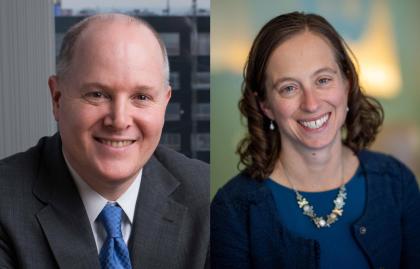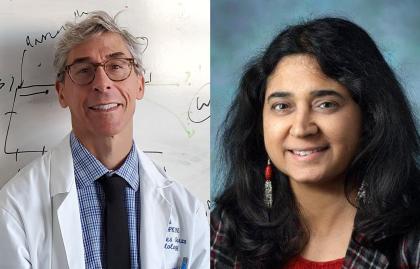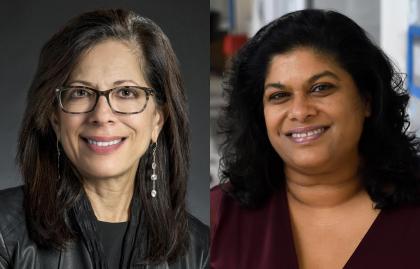Johns Hopkins University's Fannie Gaston-Johansson Faculty of Excellence Program (FGJFEP), an initiative focused on the recruitment, retention, and advancement of faculty who demonstrate a commitment to diversity and inclusive excellence at Johns Hopkins University, has announced the three winners of its 2023 Cluster Awards. A total of 10 new faculty members will be hired across the following clusters, each of which represents a different interdisciplinary field:
- Health Data Informatics and Equity, in which health data will be harnessed to help decrease health disparities
- Molecules to Medicine, which will address the lack of diversity among basic science faculty at the School of Medicine
- Biological and Immunological Landscape at the Intersection of Race and Ancestry, an exploration of how health disparities can affect the prevalence and treatment of cancer
Founded in 2015 and renamed in 2022 to honor a pioneering nursing educator and researcher who spent more than two decades at Hopkins, the FGJFEP promotes faculty diversity by recruiting both individual scholars and interdisciplinary clusters. Since its inception, the program has helped dozens of researchers pursue tenured faculty positions across the university, creating new pathways to success for members of underrepresented communities.
"This is the second round of clusters chosen in Gaston-Johansson's name," said Roland Thorpe Jr., associate vice provost of faculty diversity and a professor at the Bloomberg School of Public Health. "As an accomplished academic and the first Black woman to become a tenured professor at Hopkins, Gaston-Johansson was a perfect example of the excellence for which this university strives. Those recruited through the Fannie Gaston-Johansson Faculty of Excellence Program will carry on her legacy, strengthening the work of our university."
More on the faculty clusters:

Image caption: Paul Nagy and Elizabeth Stuart
Image credit: Johns Hopkins University
Health Data Informatics and Equity
Cluster leads: Paul Nagy, radiology, and Elizabeth Stuart, biostatistics
With the rise of artificial intelligence and the increasing availability of health data, it is more important than ever to ensure that such data is being used thoughtfully. If left unchecked, algorithmic bias may exacerbate health inequities rather than reduce them. To avoid this, the "Vision for Health Data Informatics and Equity at Johns Hopkins" program will recruit leading researchers in health data informatics, harnessing their skills and insight to improve health and reduce disparities.

Image caption: Luis Garza and Rajini Rao
Image credit: Johns Hopkins University
Molecules to Medicine
Cluster leads: Luis Garza, dermatology, and Rajini Rao, physiology
To address the lack of diversity among basic science faculty at the School of Medicine, new hires will be made across the Institute for Basic Biomedical Sciences (IBBS), the Center of Bioengineering, and various departments in the School of Medicine, the Bloomberg School of Public Health, and the Whiting School of Engineering. Known as the IBBS Molecules to Medicine Initiative, this effort will recruit basic science biologists who will receive mentorship as well as exposure to potential clinical applications for their work.

Image caption: Elizabeth Jaffee and Ashani Weeraratna
Image credit: Johns Hopkins University
Biological and Immunological Landscape at the Intersection of Race and Ancestry
Cluster leads: Elizabeth Jaffee, oncology, and Ashani Weeraratna, biochemistry and molecular biology
For years, health disparities have caused some communities to experience higher levels of cancer prevalence and mortality. Factors like socioeconomic status, race/ethnicity, and geography can noticeably affect both the likelihood that someone will get cancer and the outcome of their case. To address these disparities and ensure equitable access to cancer prevention, diagnosis, and treatment, new researchers will be hired to study the underlying molecular and cellular changes that may cause these inequities.
Posted in University News
Tagged cancer, diversity, health disparities







